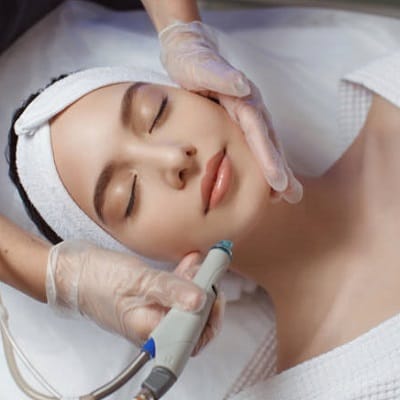
Because they wash, exfoliate, and moisturize the skin to leave it looking fresh and revitalized, HydraFacial treatments are becoming more and more sought after. Some patients, however, might have itching after the operation. Although this is usually a minor and transient side effect. However, recognizing the causes of it and how to control it will enable you to maximize your HydraFacial treatment. Therefore, we will give the answer to your question, Why Is My Face Itchy After a HydraFacial Treatment, in this blog.
What is the HydraFacial Treatment?
- One must first know what the therapy involves before exploring the reasons for post-HydraFacial itching. One multi-step face treatment called a HydraFacial consists in:
- Dead skin cells are eliminated, preparing the skin for the therapy. Exfoliation and cleansing follow.
- Applying a mild acid peel helps the skin to be further exfoliated and dirt and waste from pores loosen.
- Vacuum-like tool used for purifying pores.
- Serums with antioxidants, peptides, and hyaluronic acid for skin protection.
- The treatment enhances appearance, tone, and texture.
- Intensity and depth may cause temporary effects like itching.
Why Is My Face Itchy After a HydraFacial Treatment?
If you get HydraFacial and are having any side effects like itching, read the following points. Furthermore, it will help you answer your question, Why Is My Face Itchy After a HydraFacial Treatment?
A HydraFacial treatment might cause itching for many reasons:
Sensitivity of Skin:
Deep washing and exfoliating hydra facials might temporarily cause the skin to become sensitive. As the skin responds to the therapy, this higher sensitivity might cause a minor itchy sensation.
Acid Peel Reaction
The skin is exfoliated in the acid peel stage using glycolic or salicylic acid. Although these acids are usually harmless, particularly for those with sensitive skin, they can sometimes produce moderate irritation or itching.
Extraction Methodology
The vacuum-assisted extraction on the skin may be somewhat forceful and irritate the skin mildly. As the skin heals, this mechanical feature of the therapy might cause itching.
Infusion of Serums
- Serums that thoroughly enter the skin finish hydraulic facial treatments. Although these serums have great benefits, sometimes they induce a tingling or irritating feeling, especially if your skin is not acclimated to the components.
Dehydration and Dryness
Some people may temporarily dry up or dehydrate after the therapy despite the hydration procedure. As the skin regulates itself, this might provide a tight, itching sensation.
Control and Calms Post-HydraFacial Itchiness
If you have itching after your HydraFacial, there are various actions you may do to improve your recovery and calm your skin:
Apply Mild, Hydrating Cosmetics.
Choose mild, scent-free cleansers and moisturizers to prevent the aggravation of existing conditions. Products such as ceramides, aloe vera, and hyaluronic acid help moisturize and calm the skin.
Avoid Harsh Ingredients
Avoid products like alcohol, retinoids, and exfoliants for at least a few days after treatment. These might aggravate sensitivity and prolong itching.
Keep Hydrated
Consuming plenty of water will let your skin remain moisturized from the inside out, hence reducing dryness and irritation.
Use a Cool Compress
Should your skin be very sensitive, a cold compress offers instant comfort. Steer clear of immediately rubbing ice on your skin as this might aggravate things worse.
Do Not Scratch
Scratching could harm the skin and maybe bring germs that cause diseases. If you need relief, instead lightly tap or massage the irritating areas.
Apply Anti-Itch Creams
Calamine lotions or over-the-counter hydrocortisone cream can ease itching. usage cautiously, nevertheless, and steer clear of lengthy usage without expert advice.
When Should One Consult Experts?
- Although a minor and transient adverse effect of HydraFacial treatments is usually moderate itching, if you have:
- Strong or persistent itching
- Redness or swelling not getting better
- Hives or rashes
- Indices of an infection, including pus or more discomfort
- These symptoms might indicate an allergic response or some underlying condition that calls for expert treatment.
Avoiding Itchiness in Next HydraFacial Procedures
- Ask a skincare specialist to test for allergies using materials used during HydraFacial.
- Inform the aesthetician about skin type and sensitivities. They may adjust products and treatment settings.
- Start with lighter treatments and gradually increase the intensity to allow the skin to adjust.
Final Verdict:
One often occurring but usually minor adverse effect of a HydraFacial is itching. Learning the causes of this feeling and learning how to control it will enable you to keep comfort and optimize the results of your therapy. Always let your skincare specialist know about any issues and closely follow their aftercare advice. Proper maintenance will help you to maintain your skin free of irritation and healthy while enjoying the rejuvenating properties of HydraFacial’s.



